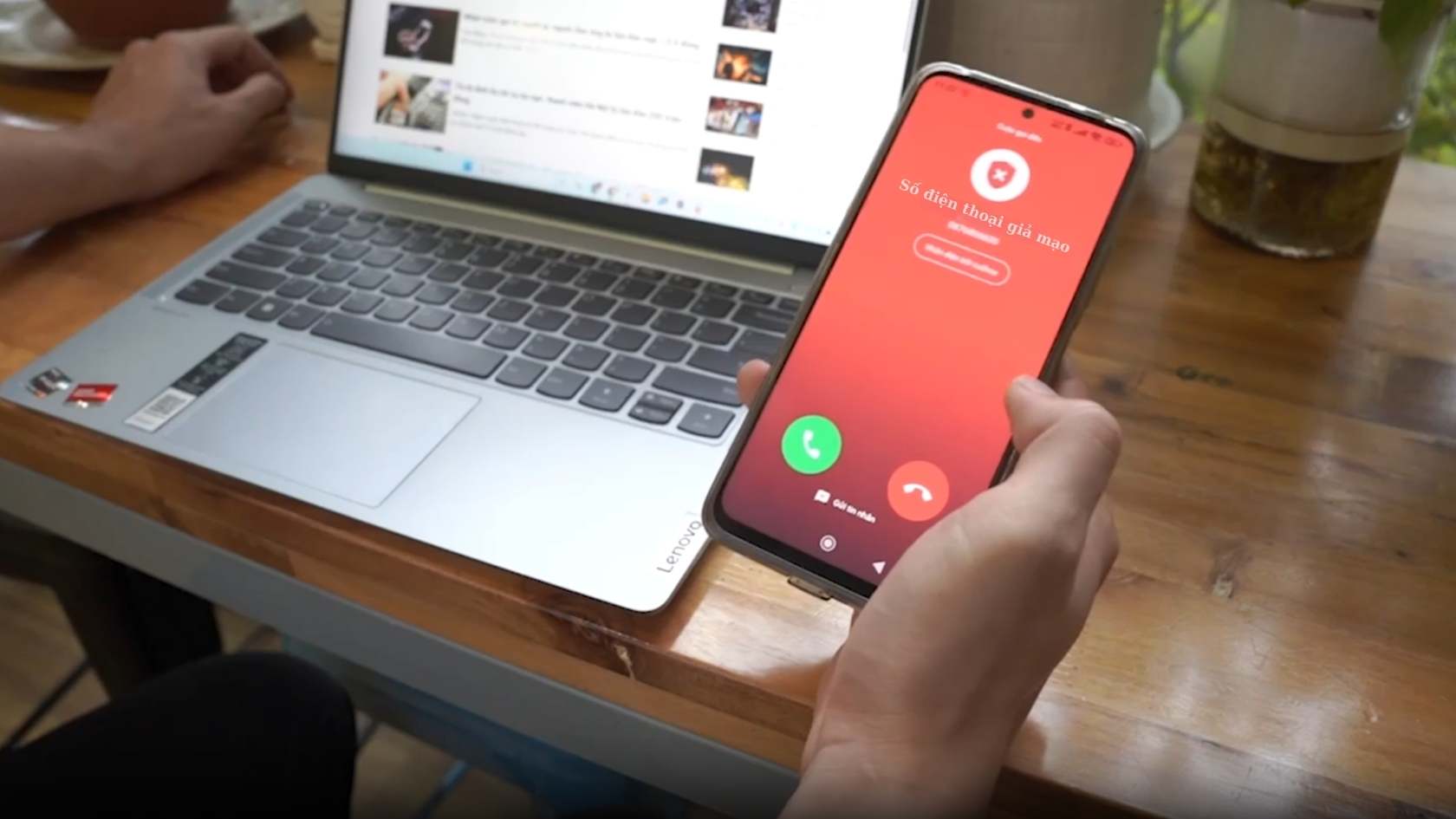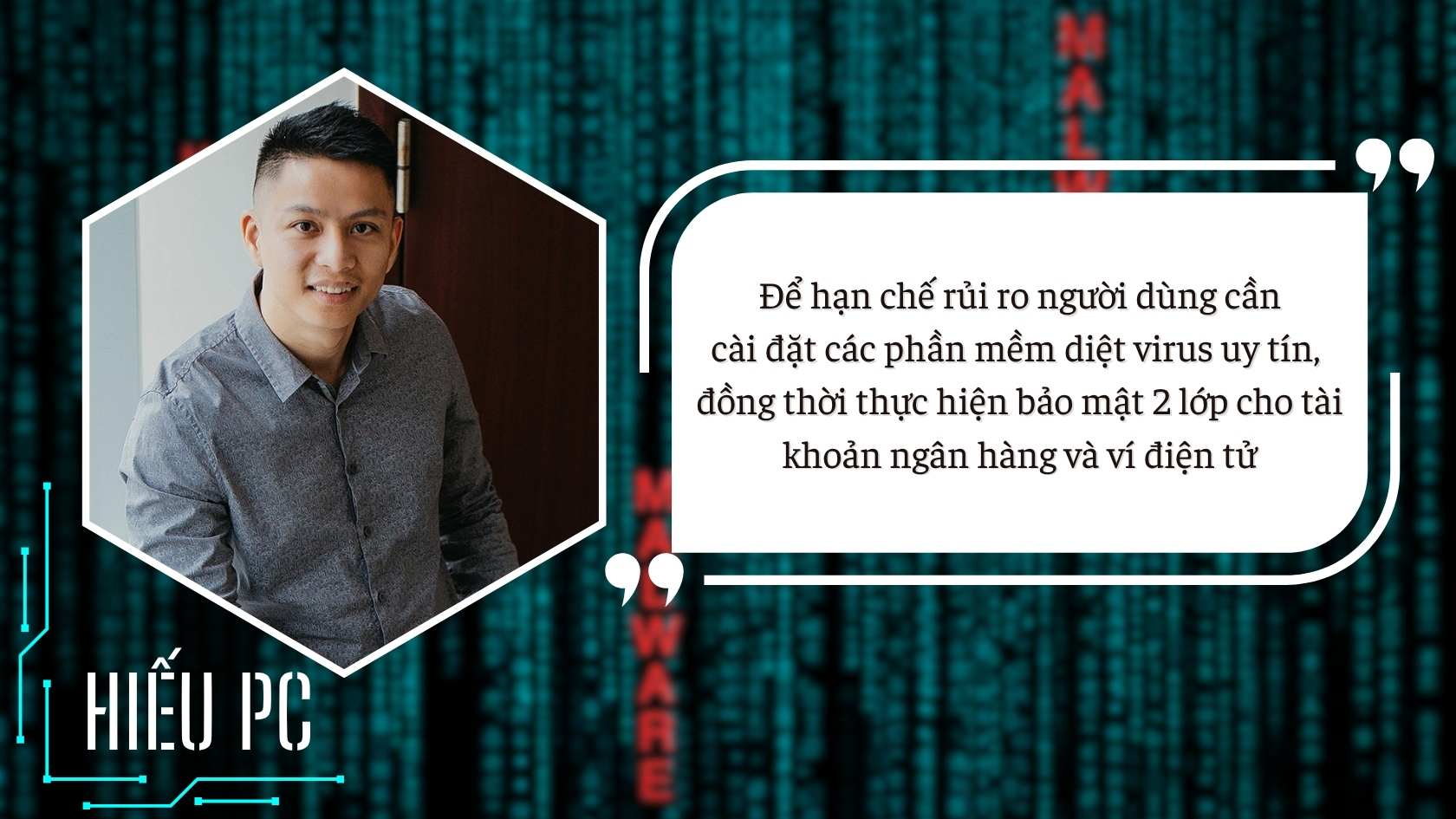
"One call, lose money": A familiar trap that many people still fall into
With just one call claiming to be a tax officer, along with emphasizing the new regulations and mandatory tax obligations, many people have lost tens of millions of VND because they trust and follow instructions to install software and declare personal tax information.
On the morning of June 9, Ms. Nguyen Thi Huong (character's name has been changed) - the owner of an individual business household specializing in online sales - received a call from an unknown number claiming to be a tax office officer. This person asked Ms. Huong to register an electronic invoice and declare tax obligations through a specialized software. To properly perform the process, the subject asked Ms. Huong to make friends with Zalo, then sent a link to download the application with specific instructions.
"Because I was afraid of violating regulations, I followed the instructions. After installing the application and providing some information, my phone suddenly went out of operation. Less than 10 minutes later, the entire amount of more than 40 million in my bank account was gone. However, only when I could not contact that person, did I realize that I had been scammed" - Ms. Huong shared indignantly.
Not only in Ms. Huong's case, the situation of impersonating tax officials to defraud software and appropriate property is appearing more and more commonly. Some users reported being constantly called, asking to updated tax obligations or being fined if not electronically declaring according to the new form. Taking advantage of concerns about administrative procedures and lack of official information, the subjects have gained the trust and lured the victims into traps.
According to a survey by the National Cyber Security Association in 2024, 1 in 220 smartphone users will be victims of online fraud, a rate of 0.45%. The total damage caused by online scams in 2024 is estimated at VND18,900 billion.
In reality, the number of victims who can get their money back is very low. When caught into a scam, although 88.98% of users said they had immediately warned and discussed with relatives and friends, only 45.69% of respondents reported to the authorities - this is a fairly low rate.
People need to know how to protect themselves in the digital environment
Speaking to Lao Dong Newspaper, Mr. Ngo Tuan Anh - Vice President of the Vietnam Information Security Association (VNISA) - said that impersonating tax officials to defraud and install software is a form of deliberate social attack, also known as "social technique". This is a form of cybersecurity attack based on human psychology manipulation to achieve the attacker's goals.
The attackers use fraudulent and manipulation methods to make the victims voluntarily provide information, perform unwanted actions, or access malicious links. This form of fraud often targets people with little knowledge about technology.
When users install software from unverified links, hackers can take control of their devices, record keyboard operations, take screenshots or insert malware into banking applications, thereby stealing information and appropriating assets, Mr. Tuan Anh warned.
According to this expert, fraudulent applications often show signs: requests for in-depth access to the device (camera, microphone, messages, location), poor interface, no authentication from official application warehouses. Some applications also require users to directly enter bank information and transaction authentication codes.
To avoid becoming victims, people should absolutely not install software from strange links, especially links sent via Zalo, Facebook, and emails of unknown origin.
In addition, do not share OTP codes, passwords, or bank account information with anyone, including those claiming to be authorities. At the same time, when receiving an unusual call, it is necessary to re-check the information through the official information portal of the tax authority, call the support hotline or go directly to verify.

According to cybersecurity expert Ngo Minh Hieu (Hieu PC) - Director of the Anti-Fraud Project, to avoid being penetrated by bad guys, users also need to install reputable virus-destroying software, while implementing two-layer security for bank accounts and e-wallets.
In the context of digital transformation, in addition to promoting the application of technology, authorities need to simultaneously increase communication and instruct people on skills to prevent cyber risks. We cannot leave people behind in a rapidly developing digital environment" - Mr. Hieu commented.
Authorities are coordinating to track down high-tech fraud rings and warn people to be vigilant when fulfilling tax obligations via the electronic environment. The Tax Departments of provinces and cities recommend that people only use official channels of the tax sector such as (gdt.gov.vn, licensed Software National Public Service Portal) to declare, pay taxes and look up electronic invoices.











